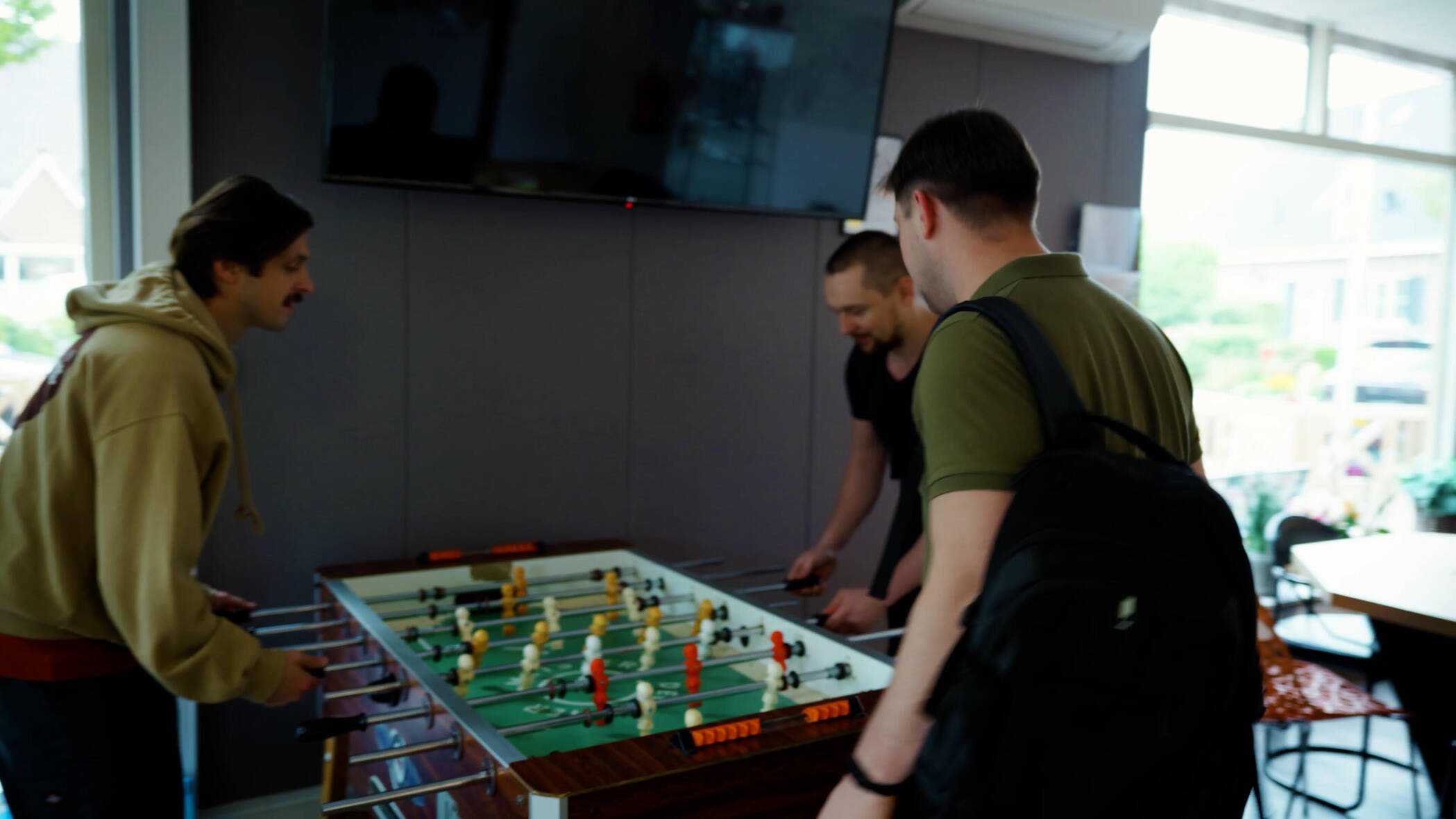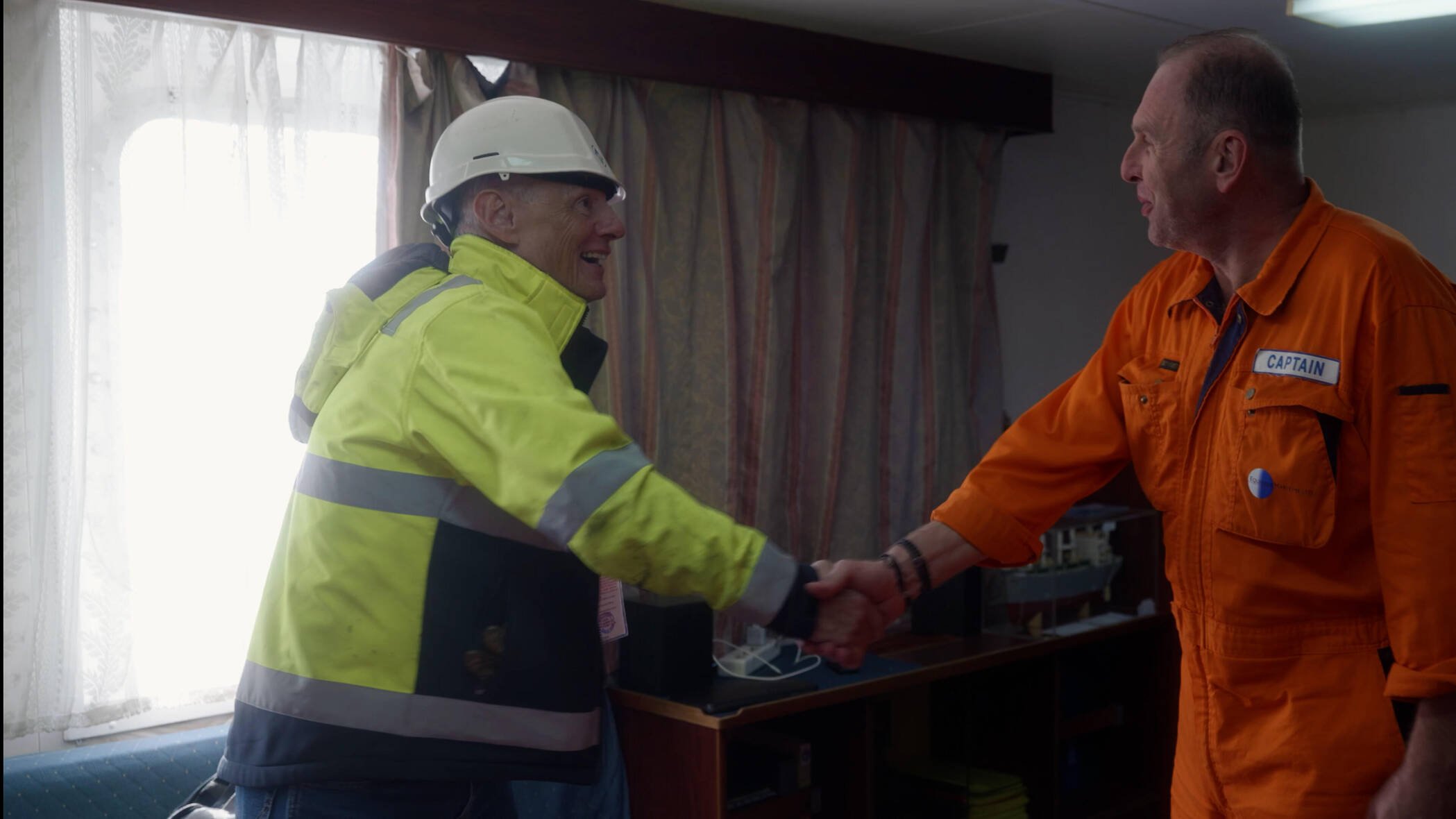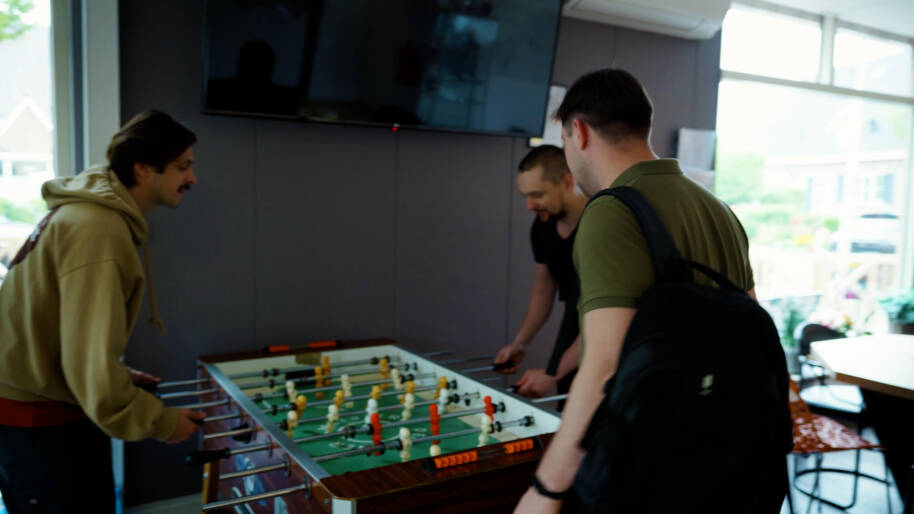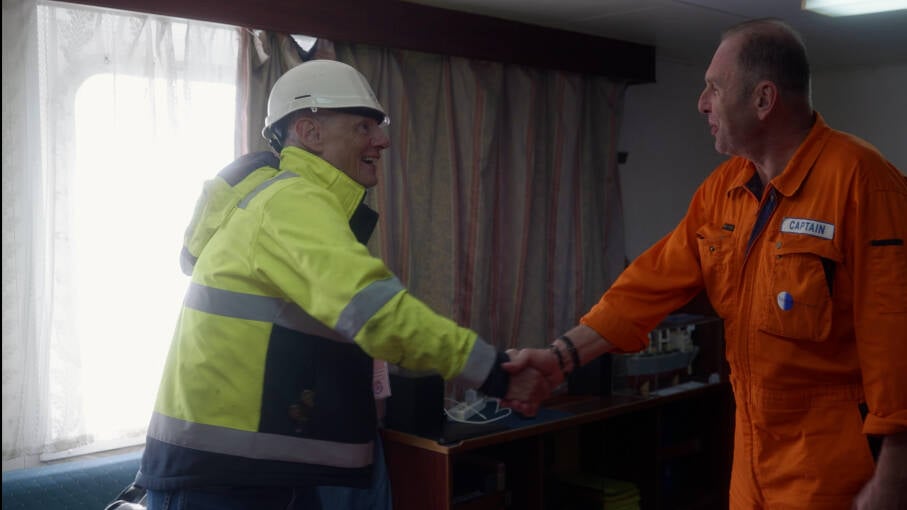Safety is of paramount importance in the maritime sector. That is why we regularly speak with professionals from the sector who share their experiences, practical tips and valuable insights that help to work safely and efficiently.




Keep talking
Keep talking to each other on board, both on board and at home.
Ensure you get enough rest
Invest in comfortable beds and ensure a peaceful sleeping environment. Getting enough sleep reduces fatigue and increases alertness. Try to put your worries aside from time to time and get some rest.
Pay attention to your diet
Eat as healthily as possible, even at sea. A balanced diet gives you energy and supports your immune system.
Think positively
Try to turn things around sometimes. Try to see the positive things that are present or the positive factors around you and always let the positive outweigh the negative.
Take holidays from time to time
Take holidays from time to time and don't let stress and tension take over.

it is also a way of life



Stay true to yourself
Be faithful to who you are and set your boundaries in a friendly but clear manner. This will prevent you from exceeding your own limits and keep the work pleasant and safe for everyone.
Seek out the beautiful moments
Allow yourself time to enjoy: a beautiful sunset, a cosy barbecue or simply the feeling of satisfaction after a productive day. This will nourish your energy and keep you positive.
Keep in touch with home – but not too much!
Stay connected with your family and friends, but maintain a balance. Too much contact can increase homesickness; choose fixed times that feel right for you.
Tackle problems head on
Don't pile up your problems; they won't go away on their own.
Be social and find a buddy
A trusted colleague on board can mean a lot. Take part in joint activities or organise something yourself, from a game night to a short workout. Together you are stronger.
Take care of your body
Try to eat well, get enough rest and exercise.
Recognise and acknowledge signs of stress
Pay attention to signs such as headaches, fatigue, insomnia or irritability. Raise the alarm in good time. Early intervention prevents bigger problems.



Read your contract carefully
Make sure you understand all the terms and conditions of employment before signing. That way, you will know what you are entitled to and avoid any surprises.
Use the ITF Seafarers App
This free app allows you to check whether the ship you are signing on to is covered by an ITF agreement. It also provides the contact details of all ITF inspectors and affiliated trade unions.
Dare to speak up
Say something if something is not right on board. Can't do it alone? Find colleagues who are experiencing the same thing and discuss it with the captain together.
Make use of shore leave
Whenever possible, go ashore during a stop. This will help you relax, recharge your batteries and improve your well-being on board.
Maintain a good social life on board
Free internet is great, but avoid locking yourself in your cabin. Socialise with colleagues, take part in activities and build a supportive network on board.






Safety is of paramount importance in the maritime sector. That is why we regularly speak with professionals from the sector who share their experiences, practical tips and valuable insights that help to work safely and efficiently.

Keep talking
Keep talking to each other on board, both on board and at home.
Ensure you get enough rest
Invest in comfortable beds and ensure a peaceful sleeping environment. Getting enough sleep reduces fatigue and increases alertness. Try to put your worries aside from time to time and get some rest.
Pay attention to your diet
Eat as healthily as possible, even at sea. A balanced diet gives you energy and supports your immune system.
Think positively
Try to turn things around sometimes. Try to see the positive things that are present or the positive factors around you and always let the positive outweigh the negative.
Take holidays from time to time
Take holidays from time to time and don't let stress and tension take over.

it is also a way of life

Stay true to yourself
Be faithful to who you are and set your boundaries in a friendly but clear manner. This will prevent you from exceeding your own limits and keep the work pleasant and safe for everyone.
Seek out the beautiful moments
Allow yourself time to enjoy: a beautiful sunset, a cosy barbecue or simply the feeling of satisfaction after a productive day. This will nourish your energy and keep you positive.
Keep in touch with home – but not too much!
Stay connected with your family and friends, but maintain a balance. Too much contact can increase homesickness; choose fixed times that feel right for you.
Tackle problems head on
Don't pile up your problems; they won't go away on their own.
Be social and find a buddy
A trusted colleague on board can mean a lot. Take part in joint activities or organise something yourself, from a game night to a short workout. Together you are stronger.
Take care of your body
Try to eat well, get enough rest and exercise.
Recognise and acknowledge signs of stress
Pay attention to signs such as headaches, fatigue, insomnia or irritability. Raise the alarm in good time. Early intervention prevents bigger problems.


Read your contract carefully
Make sure you understand all the terms and conditions of employment before signing. That way, you will know what you are entitled to and avoid any surprises.
Use the ITF Seafarers App
This free app allows you to check whether the ship you are signing on to is covered by an ITF agreement. It also provides the contact details of all ITF inspectors and affiliated trade unions.
Dare to speak up
Say something if something is not right on board. Can't do it alone? Find colleagues who are experiencing the same thing and discuss it with the captain together.
Make use of shore leave
Whenever possible, go ashore during a stop. This will help you relax, recharge your batteries and improve your well-being on board.
Maintain a good social life on board
Free internet is great, but avoid locking yourself in your cabin. Socialise with colleagues, take part in activities and build a supportive network on board.
